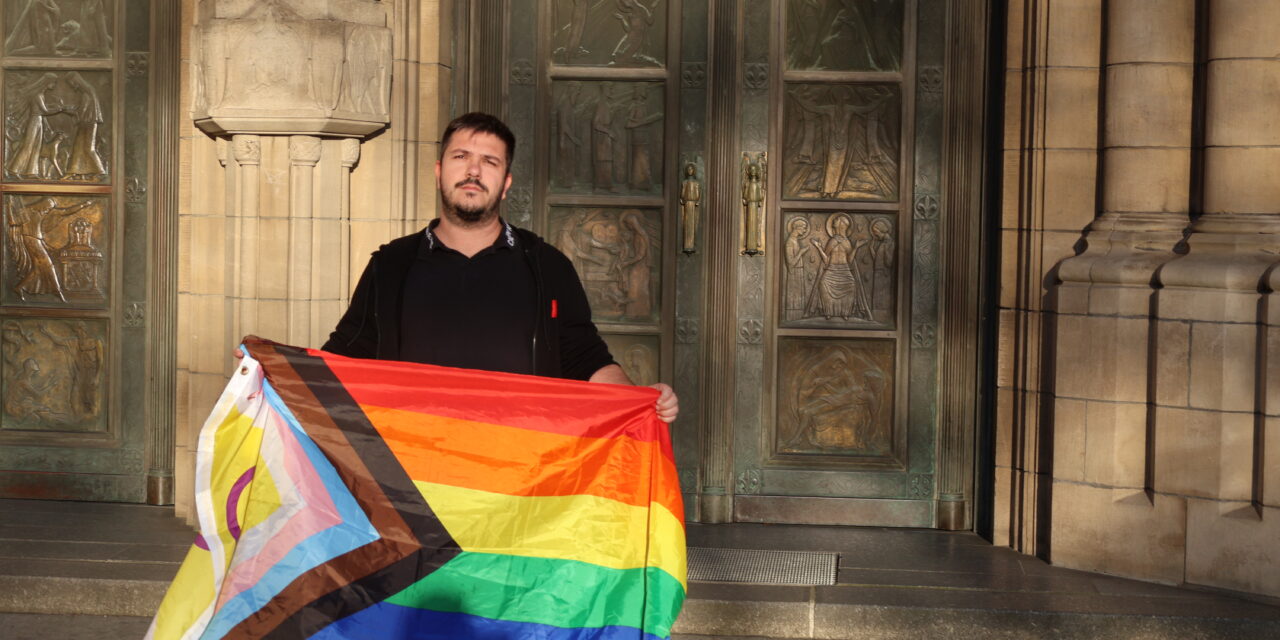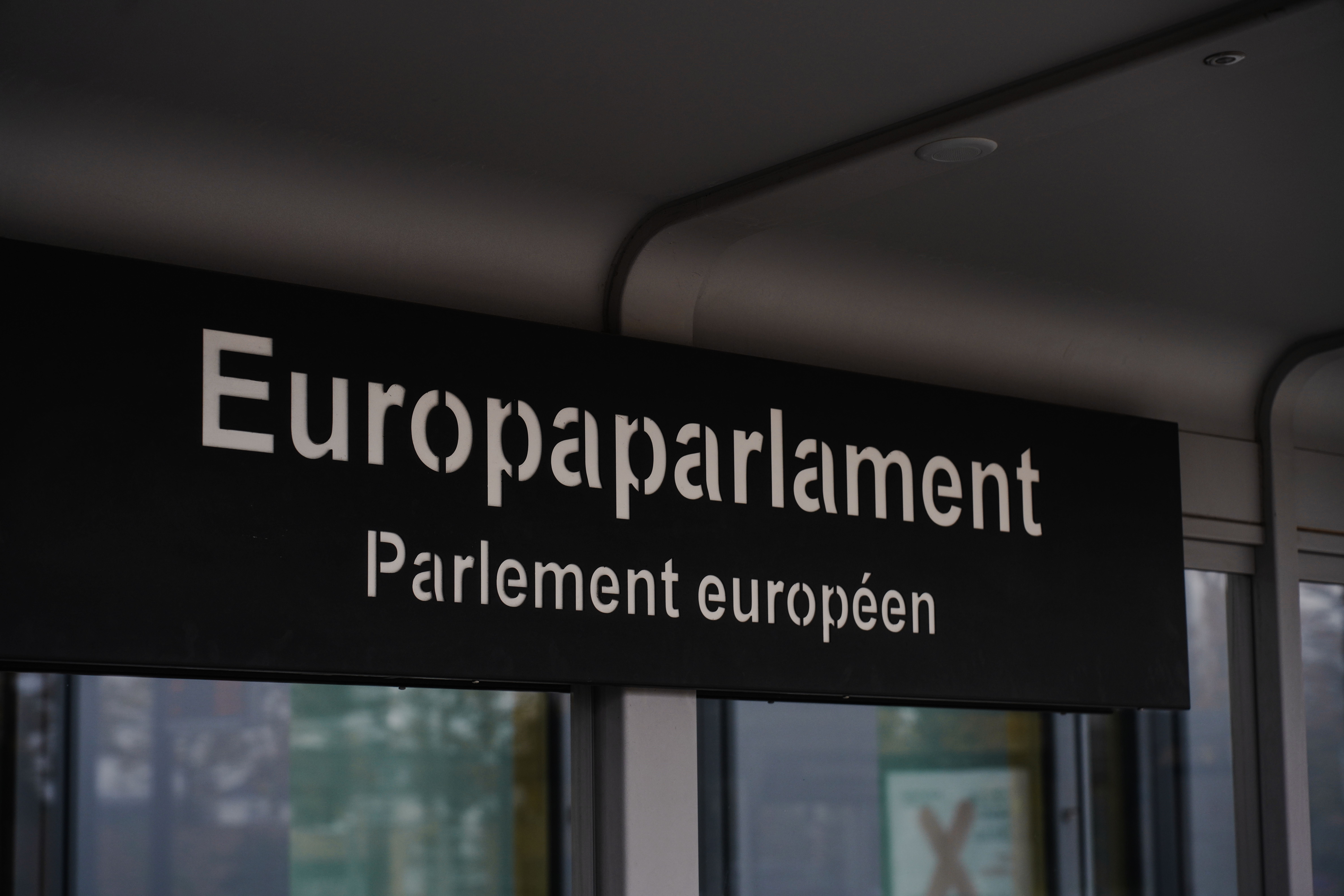Rarely has a publication of the Catholic Church caused such a stir in recent years as the latest declaration of the Dicastery for the Doctrine of the Faith “Fiducia supplicans” (“The lack of trust”), which allows priests to bless same-sex couples. However, this stir has not only created room for praise and criticism, but also for misinterpretation and misinformation. But what does this declaration by the Vatican really mean?
Same-sex couples and “couples in irregular situations”, i.e. unmarried or divorced and remarried couples (whose marriage has not been annulled by the church), may receive a blessing from priests.
Finally – you might think, after the Congregation for the Doctrine of the Faith stated in a Responsum ad dubium in 2021 that the Church has no (God-given) authority to bless same-sex couples.
While the aforementioned Responsum ad dubium had strengthened conservative circles within the Roman Catholic Church, it also triggered a wave of criticism that could be interpreted as a small revolution. In Germany, for example, numerous priests blessed homosexual couples in a nationwide campaign under the motto “Love wins” – against the will of the Holy See – and thus put their careers at risk.
However, criticism did not only come from the lower clergy: immediately after the Responsum ad dubium of 2021, various bishops announced that they would not sanction priests who bless same-sex couples, including Luxembourg Archbishop Jean-Claude Cardinal Hollerich and Bishop Felix Glenn of Münster. The blessing of homosexual couples by priests was therefore de facto already permitted in various dioceses. And what about the new declaration of the Discastery?
All that glitters is not gold. With conditions and paraphrases such as the fact that the blessing may not be promoted, may not correspond to a fixed liturgical rite or even resemble a sacrament, the Vatican authority ensures that such a blessing can under no circumstances be confused with marriage. The church’s view of marriage is in no way changed by this letter – a traditional, heteronormative view continues to exist. Man-woman-children-ready! The blessing is for both partners and not for the union that exists between the couple.
However, I am by no means talking down this innovation – I consider this publication to be a small but very important step in the right direction.
The Pope, as head of the Catholic Church, has a responsibility to maintain the balance between progressive and conservative currents within the Church. This area of tension is crucial for keeping the Church united. The challenge is to find a way in which it takes into account the needs and beliefs of its worldwide faithful, modernizing doctrine at an appropriate pace while remaining faithful to its theological principles.
We can see the complexity of this task at present through the diverse responses from different parts of the world, including Nairobi, Nigeria and Malawi. The diversity of views within the Church reflects the tensions faced by the Vatican.
Even if the Vatican’s decision, at least in Central Europe, has now dispelled the great uncertainty that has existed among clergy regarding the blessing, there is certainly no reason to fear a major run on our places of worship. The title of the document “Fiducia supplicans” is very accurate. Many queer believers simply lack trust. After years of Sodom and Gomorrah, Old Testament abominations and Romans 1, who can blame them?
As early as 1975, the Congregation for the Doctrine of the Faith addressed the issue of homosexuality in the declaration “Persona humana”. This document describes sexuality as a central element of personality that gives human life its fundamental, differentiating character traits. However, the sexual act would only be moral and worthy if, in short, it served procreation in conjugal life. In the case of homosexuality, a distinction should be made between “homosexuals whose inclination derives from a wrong education, from a lack of sexual maturity, from assumed habit, from bad examples or other similar causes and is a transitory phenomenon or at least not incurable” and “homosexuals who are forever such by a kind of innate impulse or by a pathological predisposition considered incurable.”
Although the Congregation for the Doctrine of the Faith acknowledges that some may conclude that the inclination is natural, the argument that these acts must be considered fundamentally aberrant according to objective and moral standards prevails. As far as the first category is concerned, something that is not incurable is probably curable; conversion therapies were the cruel consequence in Luxembourg too. Conversion therapies which, by the way, are still legal in Luxembourg today.
In a country where faith and the church were still considered to be the highest standards until a few decades ago, social exclusion and isolation, problems with identity and self-acceptance and often severely impaired family relationships are not uncommon.
Don’t ask, don’t tell was a common practice in many luxembourgish villages – “everyone knew, but no one talked about it” and if anyone knew, it was the village priest, confession was a must.
Even though times have changed, this philosophy is still deeply rooted in the bones of many people, especially the older generation.
The church extends a hand, not only through the “fiducia supplicans” but also through an open dialog with the queer community. For example, Rosa Lëtzebuerg maintains an exchange with the Luxembourg Archdiocese, which culminated in a meeting with Archbishop Jean-Claude Cardinal Hollerich and Vicar General Patrick Müller. Since 2022, an interfaith celebration has also been an integral part of Pride Week, in which the liberal Jewish community takes part alongside the Catholic Church. In 2022, this ceremony even took place in the Sacré Coeur church in Esch-Alzette with the express permission of the archbishopric.
Unfortunately, the archdiocese has not yet followed up on a request from Rosa Lëtzebuerg to set up a diocesan working group on “LGBTIQ+ and faith”.
However, the question arises as to whether extending a hand is sufficient or whether a clear step towards the queer community is necessary. The fact that queer believers are concerned about the topic is shown by the fact that, in addition to Rosa Lëtzebuerg’s working group, the LGBTIQ+ center CIGALE recently founded a group on the topic of faith.
But what is the theological basis for the centuries-long discrimination on the part of the Catholic Church? What does the Bible really say about homosexuality?
If you place the above-mentioned biblical passages in a contemporary historical context, you must inevitably realize that the Bible makes absolutely no statements about homosexuality as it is understood today. Same-sex partnerships on an equal footing simply did not exist at that time, at least not in public. Considering that even “modern and progressive” Luxembourg only fully recognized these partnerships more than 2000 years later, the understanding of every partnership in antiquity was certainly built on a heteronormative foundation.
The sexual act described in these texts must also be viewed in the respective cultural and socio-historical context. In antiquity, sex between men is defined by a power relationship – although sex between men is hardly the right term, as it is about the sexual act of adult men with boys, between superior and inferior.
The direct transfer of contemporary texts to today’s conditions is therefore highly problematic. The realization that frequently quoted biblical passages do not speak of same-sex love calls for a rethink of today’s interpretation and for a focus on the biblical message of love, acceptance and inclusion.
The topic of ordaining homosexuals to the priesthood is also the subject of repeated controversy within the church. The current Vatican guidelines published in December 2016 state that “practising homosexuals” and men who “have deep-seated homosexual tendencies or support a so-called homosexual culture” are excluded from the priesthood. However, sexual orientation certainly does not determine empathy or the potential to be a good pastor. Anyone who chooses the consecrated life does so (for the moment at least) in the full knowledge that such a life involves complete physical abstinence. Celibacy applies regardless of sexual orientation. Regardless of sexual orientation, however, I believe that an awareness of one’s own sexuality is important for the development of one’s own personality, which is indispensable for the pastoral care of people.
In conclusion, it can be said that faith is a deeply personal matter. Each individual is faced with the task of deciding for themselves to what extent their own faith is compatible with being queer and vice versa. In the course of my research for this article, I had the privilege of talking to both priests and believers. While there was some negative feedback, the positive reports outweighed the negative. Many of the faithful spoke about how they had found their place within the church – from simply belonging to the faith community to being actively involved in the pastoral council.
These stories are a living testimony to the possibility of a harmonious coexistence of faith and queerness. They underscore the church’s ability to be a home for all, regardless of sexual orientation or gender identity. It is my sincere wish that the church will find the necessary strength to rethink outdated dogmas and actively accommodate queer believers. Such an opening would not only lead to a more diverse and open church, but would also give queer believers the courage they need to accept the outstretched hand. It is about forgiving the past and finding a place together in a church that is undergoing change. This process is crucial to creating an inclusive community where every person can live their faith freely and without fear.
Photo: Kusaï Kedri
Article translated from German





